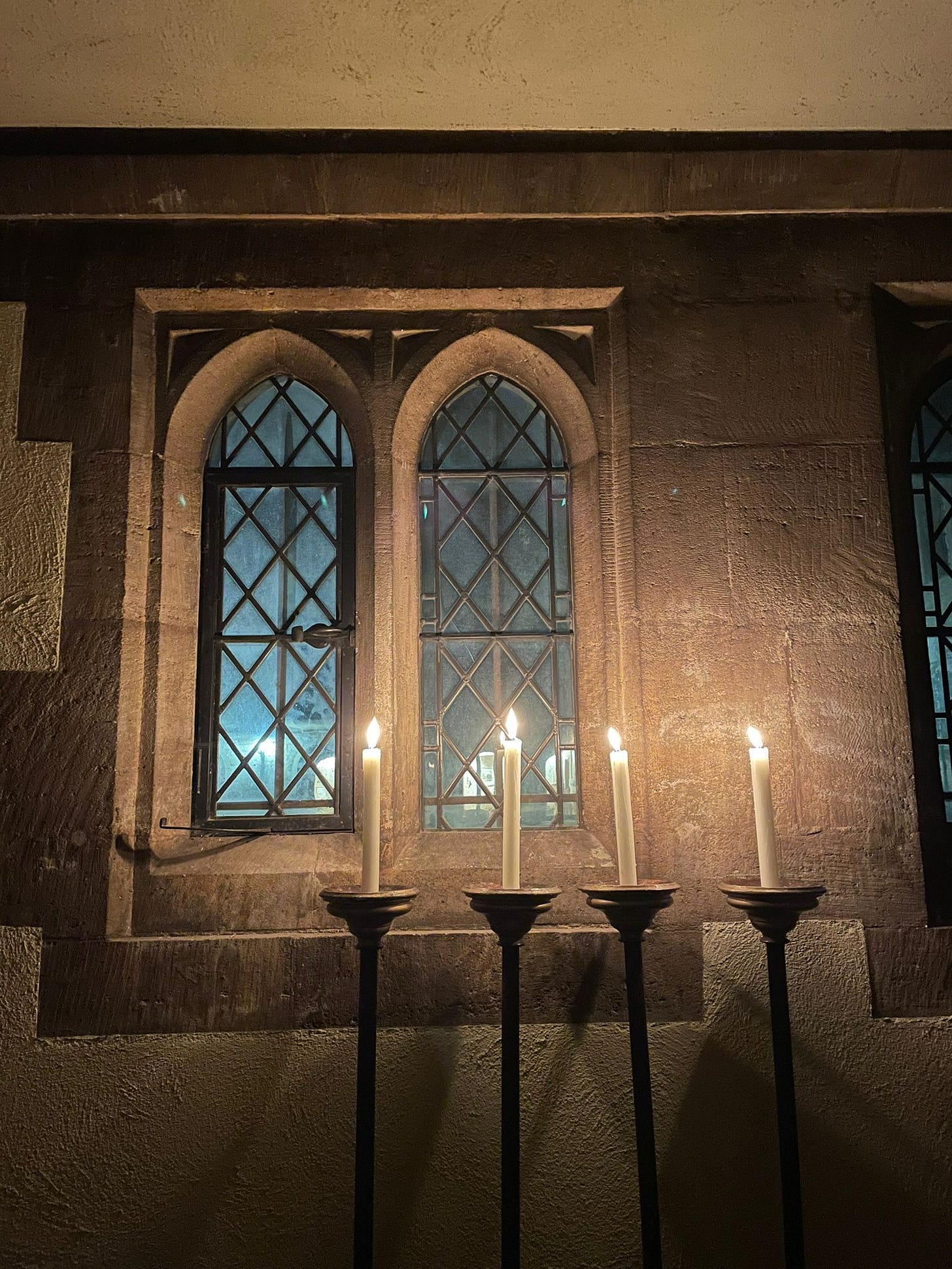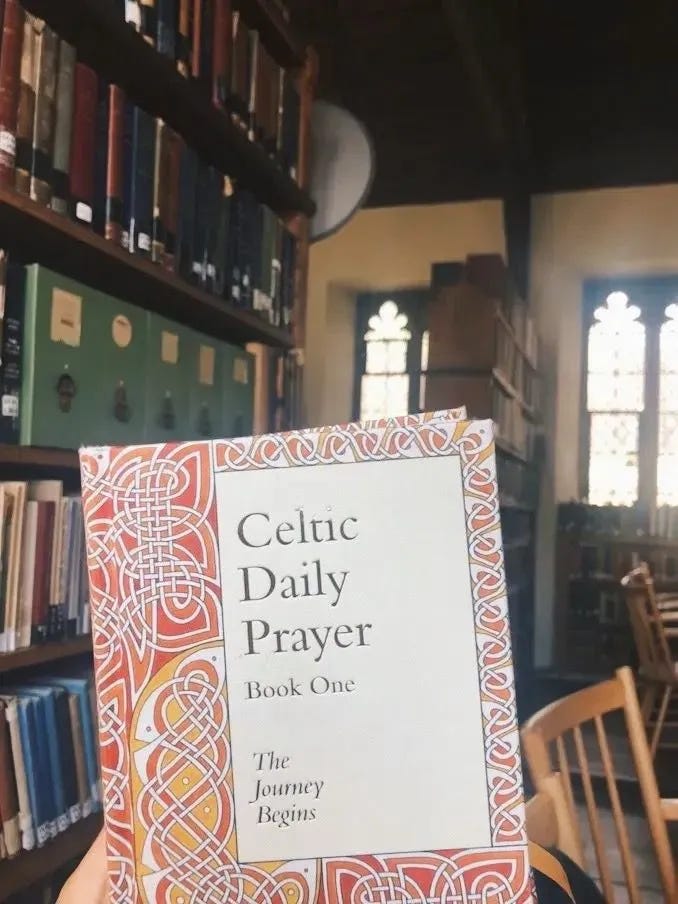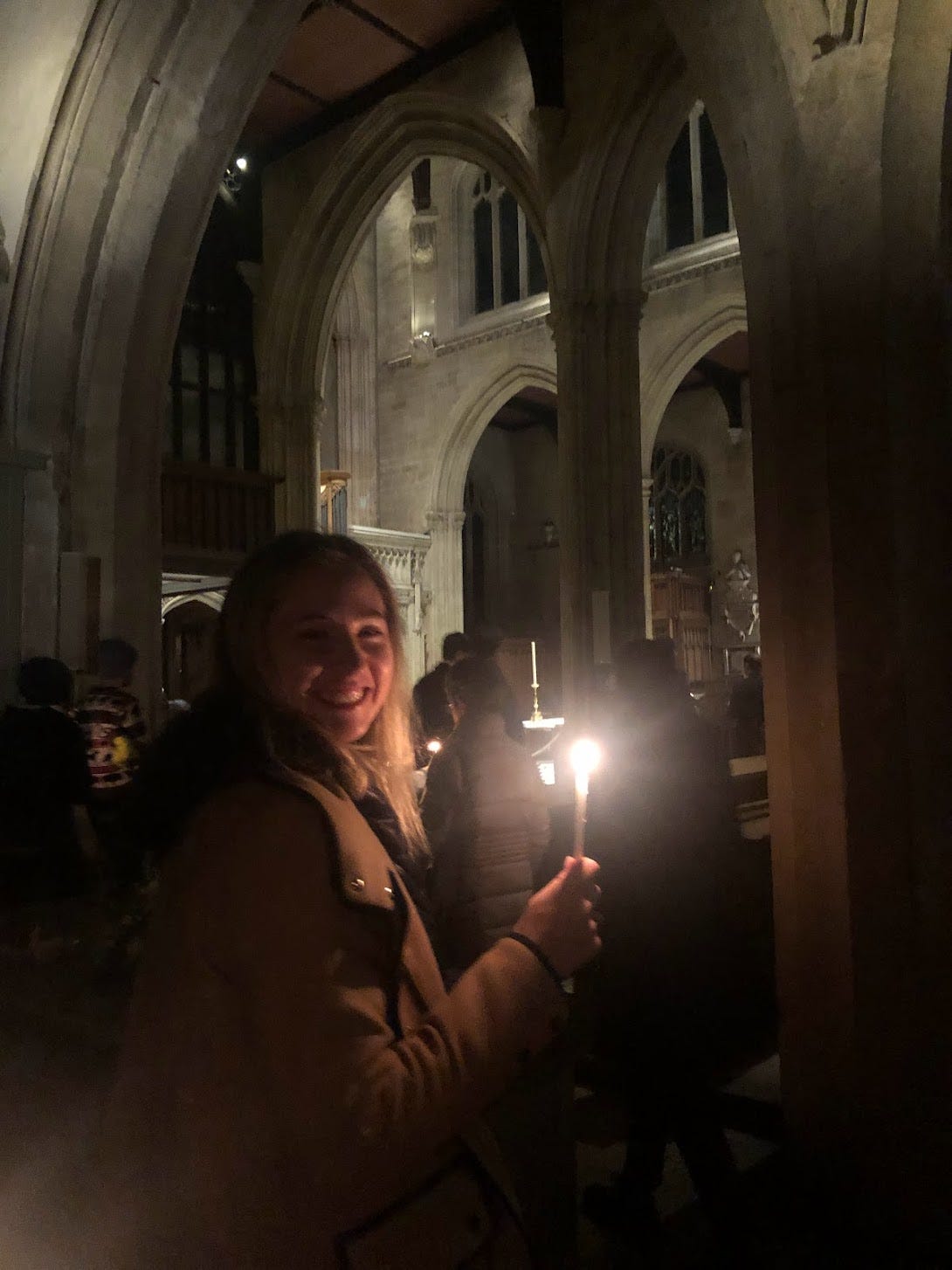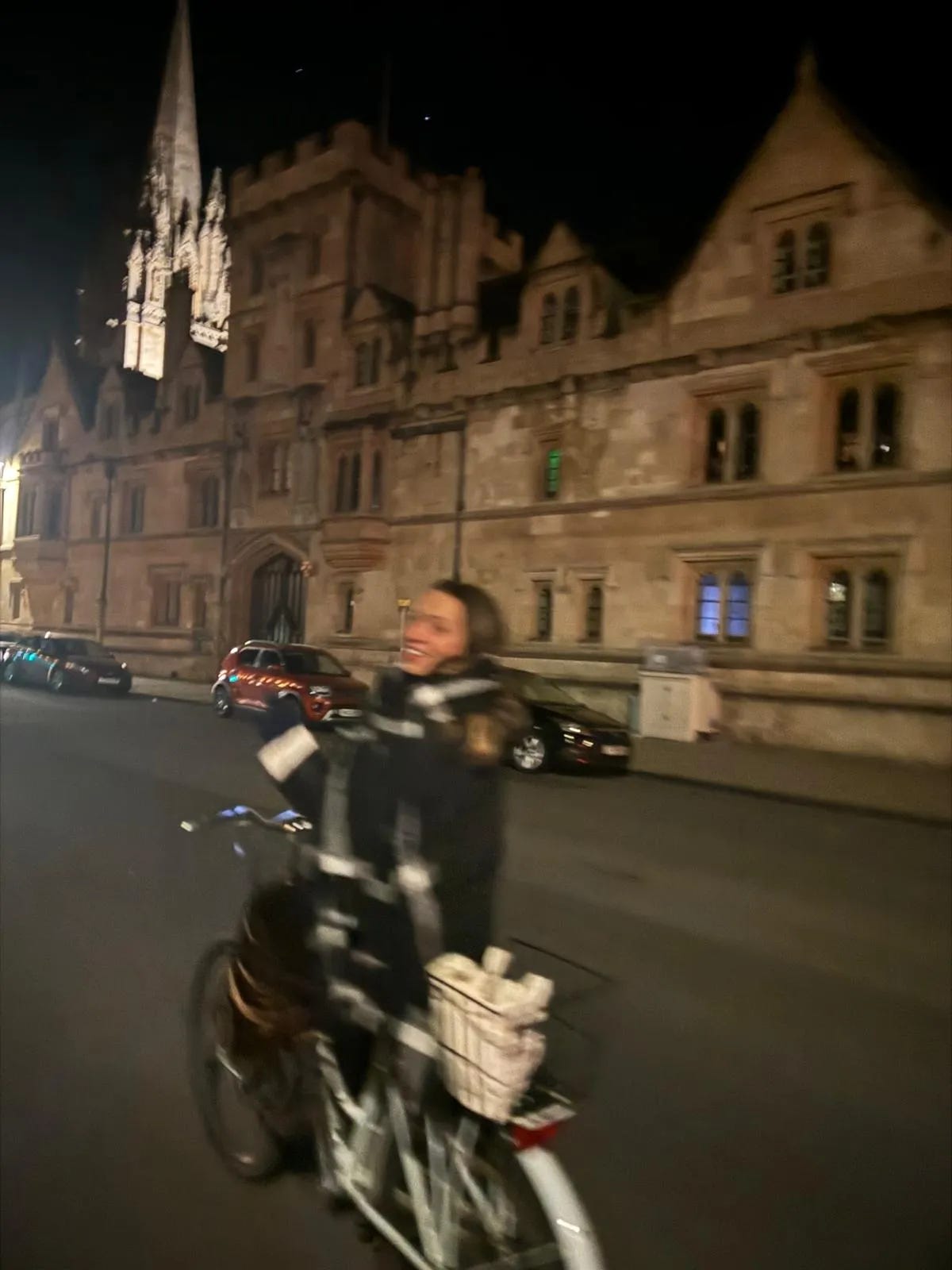A Monk's Bedtime Prayers: The Gift of Compline
& How to do it in Your Living Room
‘As it was in the beginning, is now and ever shall be: world without end. Amen.’
These words reverberate against the many cold slants of the chapel walls until they reach its stone ceiling top. Sitting in a room like this—detailed, lofty, and calling your eyes upward—these words seem more true, more alive. It’s as if this ‘world without end’ might just be breaking in on you, with or without your consent.
On this All Hallow’s Eve, I’d like to share about the practice of Compline and why I hope to make it a habit no matter where I live—England or Alabama. Before I moved to Oxford, I had never even heard the word ‘Compline’. Now, many of the chapels inside the 36 colleges that collectively comprise the University of Oxford1 offer this addicting weekly service by candlelight in late evening hours.
Compline comes from the latin word ‘completorium’ or completion, to signify it as the final fixed-hour prayer service observed in the daily office, rounding out the day. While its exact origins are debated, some scholars attribute it to the desert fathers and their early monastic communities formed in Egypt in the 4th century. Other liturgists argue it was institutionalised by the Rule of St. Benedict in the West in the 6th century and by St. Basil in the Eastern church. Regardless, a monk’s life was organised around set intervals of worship, and compline formally became their bedtime prayers.
The Mechanics of Compline
The service is short and sweet, only lasting about 20 minutes, but enough time for its contemplative themes to take hold of you. You slowly enter a dark chapel and are handed a candle to hold throughout, joining the other small flickering flames which line the space. You’re also given a book with the prayers and songs for the service, which is basically the same liturgy each week, except for the psalm and a few other bits varying lightly. Its content plays with the themes of light and darkness, which you are in the process of so viscerally soaking in through the physical set-up of the room. What first seems like a strange or other-worldly practice slowly becomes familiar through regular attendance. The loving labour of ritual has its way with you, motioning in spiritual growth through the backdoor of the senses and not only the mind.
One of my favourite lines is a request to God, asking him to ‘lighten our darkness’, offering you a chance to reflect on your day and enter into a moment of repentance as you sit in a room thick with a deep dark. The liturgy also asks for spiritual protection during the hours of the night, pointing back to more ancient times when people believed that the darkness of the night brought heightened vulnerability to spiritual ills, underscoring the more ‘enchanted’2 worldview of the medievals—or one that saw the spiritual realm as an alive and active force in our world.
Other themes during the service include meditating on peace in God, our own mortality, and entrusting ourselves to His tender care. Sounds like a soul well-prepared for bed if you ask me!
Compline in Your Living Room
As the power and relevance of embodied spiritual practices and rituals continue to be dusted off and revived in many pockets of the protestant church, Compline is a lovely place to start.
Elizabeth Oldfield has started what she calls a ‘micro-monastery’3 in a suburb of London. This is an urban adaption of intentional community life, which looks like several families living together, opening up their table for hospitality, and praying regularly together. She speaks about the weekly Compline service they hold in their garage-turned chapel, open to all, those who are spiritual and those who aren’t. They light candles and read aloud the set Compline from The Celtic Book of Prayer, a book which I’ve come to love and use every day.
Compline is simply a gift. It’s a protected moment in the rush of your weekday schedules, for what is Sacred, for what is Still, for what is Beautiful, forging a small temporal and spatial portal. It’s a little way to build into the architecture of your soul and community, the welcome of wonder.
I hope you give it a whirl at 9 pm in your living room sometime. Just turn off the lights, pull out a few candles with some people you love or with your kids, and close out the day indulging in the luminous affection of God. I’ve pasted a few of my favourite prayers from the Celtic Book of Prayer below if you need somewhere to start.
Christ, as a light
illumine and guide me.
Christ, as a shield
overshadow me.
Christ under me;
Christ over me;
Christ beside me
on my left and my right.
This day be within and without me,
lowly and meek, yet all-powerful.
Be in the heart of each to whom I speak;
in the mouth of each who speaks unto me.
This day be within and without me,
lowly and meek, yet all-powerful.
Christ as a light;
Christ as a shield;
Christ beside me
on my left and my right.
The Sacred Three
to save
to shield
to surround
this hearth
this home
this night
every night.
May the peace of the Lord Christ go with us,
wherever he may send us.
May he guide us through the wilderness
and protect us through the storm.
May he bring us home rejoicing
at the wonders he has shown us.
May he bring us home rejoicing
once again into our doors. Amen.
Drinking in all the oddities and beauties around me.
Warmly,
Carolyn
A theme thoroughly defined and explore by Charles Taylor in A Secular Age











A recent visit to Durham Cathedral led me to dust off my 20 year old Northumbria Community CD and start praying daily with the digital Celtic Prayer. I can't think of any other Christian liturgy that moves me so deeply. But I struggle with the Scriptures, particularly aspects of the Old Testament. At the moment I feel torn between spiritual paths. I was an evangelical a long time ago and feel I have to take the whole package and not give in to what used to be dismissively referred to as "buffet spirituality". And right now I can't do that. I can't accept the Bible as the living Word of God.
I LOVE this idea! And basking in the “luminous affection of God”♥️